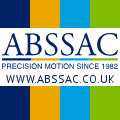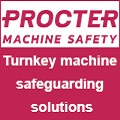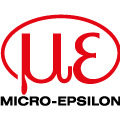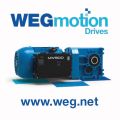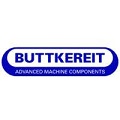
Posted to News on 13th Dec 2012, 10:25
Linear actuators used to test railway point changers
QM Systems has developed an innovative system for testing railway point changers, making good use of Servomech linear actuators and Lenze 9400 series servo inverters.
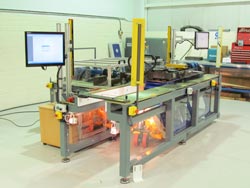
Actuators that switch railway points are clearly mechanisms that are highly safety-critical. Proof that these actuators meet the exacting railway standards required is one of the main functions of a new test system designed by QM Systems Ltd with motion technology from Lenze Ltd. At the same time, QM was able to reduce the time for tests by a factor of three, thereby reducing the operator workload and increasing safety. The latest techniques in control, recording and reporting were employed with a particular innovation in the operation of the Lenze servo drive.
Nick Field, the Managing Director of QM Systems, states: "QM's success is built on ground-breaking innovation. We are unique in our ability to deliver fully integrated solutions involving mechanical, electronic and software components."
QM Systems as a company began in the 1980s with high-technology products and software, particularly in the fields of high-integrity electronic test. More recently the company has established an automation division that specialises in the design and manufacture of automation and test systems, often operating in harsh or safety-critical environments. Today QM Systems operates from two sites in Aldershot and Holt Heath, Worcestershire.
Point changers
Point changers perform the simple task of moving railway tracks, but must do so with high dynamic forces, high reliability and comprehensive safety monitoring. They operate from a 110V DC supply with a throw bar that moves the rails by exerting a force of around 3kN. The sideways axial movement is created by a ball screw that is driven from a DC motor and the position is monitored by safety relays.
QM was presented with the challenge of testing the point changers in a way that would be credible to a conservative and highly safety-conscious worldwide market. The new test system had to be accurate, with precise measurements recorded and reported. The test process had to be faster than the 1.5 hours previously taken, yet it should provide a step change in safety and with a minimum of manual handling. Both trackside and in-track changers should be tested, also both old and new designs.
The new test systems connects to point changers that are brought in on wheeled trolleys. These are accurately located on dowel pins followed by mechanical connection of the throw bar and electrical connection to the motor. External resistance to the throw bar is provided by a motorised ball screw linear actuator that is carefully controlled to deliver a programmed stroke/force profile. The points changer is zeroed and then driven to the closed position. Stroke measurement is performed using an encoder and the stroke defines the changer model for the test report. The operator manually adjusts the torque limiting clutch in the changer to trip at a force that is set on one of the two touchscreen operator stations. National Instruments' test software is used. Electrical functionality of the points changer is tested automatically including the safety limit switches.
Servo-controlled linear actuators
The drive technology supplied by Lenze is centred on the linear actuator. This is manufactured by specialist company Servomech s.p.a. and features a ball screw mechanism that is capable of continuous operation and low backlash. Dynamic rating is above 10kN with a linear speed of 78mm/s. The actuator is fitted with an asynchronous AC motor with incremental encoder and blower, suiting continuous operation at low speed. The motor is driven by a servo inverter from the Lenze 9400 series, which is capable of delivering controlled torque and force at zero speed. QM utilises an accurate load cell between the linear actuator and a bar that simulates the moving rail, fitted on linear bearings to avoid side loads on the load cell.
Mr Field comments: "The key factor to the success of the test system is a complex control algorithm that is used to simulate a rail." Any load up to 25kN can be programmed, although 4kN is often the simulated load used. The drive runs in servo mode and clever programming of the PID control loop has been applied. Effectively this makes the actuator perform as a constant-force spring that opposes the force of the throw bar - a spring that can move in either direction through a stroke of up to 150mm. Under test the points changer starts from standstill and moves through the stroke in three seconds while the actuator delivers a constant resistive force. Mr Field says: "One of the problems we solved was the unpredictable nature of the mechanics. This was overcome by the flexibility of the drive software." Programming of the PID loop was fine-tuned in the function blocks of the Lenze L-force Engineer software.
The test machine gives results in the form of a two-page data sheet that includes the measured forces, the settings for the torque limiting clutch and all the electrical characteristics including flash, bond and continuity. These results give visual evidence of quality and are a major help to increasing the sales of points changers. However, the QM test system has achieved much more. As a result of the easy handling, the time to test is reduced from 1.5 hours to 30 minutes, and only one operator is required instead of the previous two personnel. Comprehensive guarding with light beams and safety interlocks, together with the elimination of heavy lifting, safeguards the welfare of the operator. The success of the machine has opened the door for further similar test systems worldwide.
Follow the links for more information about Servomech linear actuators and Lenze 9400 series servo inverters.
Lenze Selection (a Division of Lenze Ltd)
6 Abbey Court Road
Priory Business Park
MK44 3WH
UNITED KINGDOM
+44 (0)1234 753201




